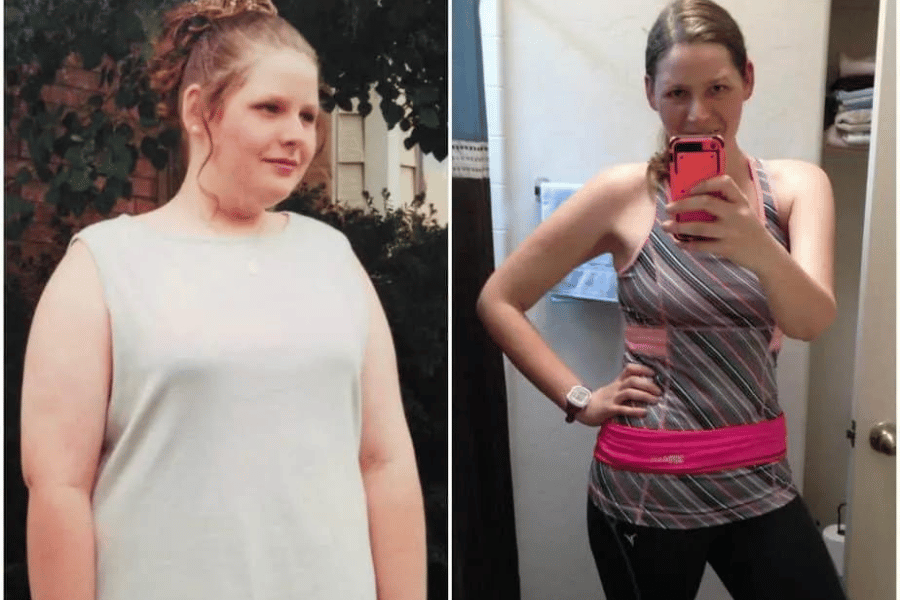As women embark on the menopause journey, they often encounter the challenge of managing weight gain, a common byproduct of hormonal changes during this life stage. The quest for an effective and sustainable weight loss strategy brings us to the alluring path of the Mediterranean diet for menopause weight loss. This diet not only promises a delicious way to shed pounds but also offers a holistic approach to enhancing overall wellness.
In this article, we will delve into the transformative power of the Mediterranean diet in the context of menopause. Recognized for its rich variety of whole foods, lean proteins, healthy fats, and an abundance of fruits and vegetables, this diet aligns perfectly with the nutritional needs of menopausal women. We aim to provide you with practical guidance and insightful tips on how to embrace this diet to navigate the menopausal phase with health and vitality.
Join us as we explore the benefits of the Mediterranean diet, tailored specifically for weight management during menopause. Whether you’re looking to revitalize your eating habits or seeking new ways to maintain a healthy weight, this journey promises to be both enriching and rewarding.

Menopause and Weight Management: The Connection
Menopause, a natural phase in a woman’s life, brings with it significant hormonal changes that can impact metabolism and lead to weight gain. This period is marked by a decrease in estrogen levels, which is often associated with an increased accumulation of fat, particularly around the abdomen. As metabolism slows down, managing weight becomes a more challenging task for many women.
Adopting a well-balanced diet during this time is not just beneficial but essential. The Mediterranean diet for menopause weight loss stands out as an optimal choice. This diet, rich in whole foods, lean proteins, healthy fats, and an abundance of fruits and vegetables, aligns perfectly with the nutritional needs of menopausal women. It helps in maintaining a healthy weight while providing the body with necessary nutrients to balance hormonal fluctuations.
The Mediterranean diet is more than just a list of foods; it’s a sustainable approach to eating that emphasizes the quality and variety of nutrients, which is crucial for women during menopause. By focusing on this diet, we can explore how it specifically caters to the challenges women face during menopause in managing their weight and overall health.
Unveiling the Mediterranean Diet for Menopause Weight Loss
Mediterranean Diet Essentials
The Mediterranean diet centers around whole foods, lean proteins, healthy fats, and a rich variety of fruits and vegetables. It’s a diet that has long been celebrated for its numerous health benefits, particularly in the context of weight management and cardiovascular health. The Mayo Clinic underscores the diet’s focus on plant-based foods, whole grains, nuts, and olive oil, combined with moderate amounts of fish, poultry, and dairy.
Nutritional Benefits for Menopausal Women
For menopausal women, the Mediterranean diet offers specific nutrients and antioxidants that support hormonal balance and overall health. A study published in the Journal of the American College of Nutrition highlights the diet’s rich content of phytoestrogens from plant-based foods, which can be beneficial in managing menopausal symptoms. The diet is also rich in calcium and vitamin D, crucial for bone health during menopause, as noted by the National Osteoporosis Foundation.
Physical Activity and Social Engagement
The Mediterranean lifestyle also emphasizes physical activity and social engagement, both of which are integral for overall well-being during menopause. Regular physical activity helps to counterbalance the slowing metabolism and weight gain often associated with menopause. The American Heart Association recommends at least 150 minutes of moderate-intensity aerobic activity per week for adults.
Meal Planning and Recipes
Incorporating the Mediterranean diet into daily life can be both enjoyable and effective for weight loss during menopause. Sample meal plans might include a breakfast of Greek yogurt with berries and nuts, a lunch of grilled vegetables and quinoa, and a dinner featuring baked salmon with a side of whole-grain pasta and a fresh salad. Portion control and meal timing are also important considerations. The Harvard School of Public Health provides guidelines on portion sizes and recommends eating at regular intervals to maintain metabolic balance.
By embracing the Mediterranean diet, menopausal women can enjoy a diverse range of foods that not only aid in weight management but also contribute to overall health and well-being. This diet, coupled with an active lifestyle and social connectivity, presents a holistic approach to navigating the challenges of menopause.
Embracing the Mediterranean Lifestyle for Weight Loss
Adopting the Mediterranean diet for menopause weight loss is more than just changing what you eat; it’s about embracing a lifestyle that fosters overall health and well-being. Here are practical strategies to seamlessly integrate this diet into your daily life:
Incorporating Mediterranean Diet in Daily Life
- Shopping Tips: Focus on fresh, unprocessed foods. Stock up on fruits, vegetables, whole grains, nuts, seeds, and olive oil. Choose lean protein sources like fish and poultry. When shopping, stick to the perimeter of the grocery store where fresh foods are typically located.
- Meal Preparation Strategies: Plan your meals ahead of time. Cook in batches to save time and ensure you always have healthy options on hand. Use herbs and spices to flavor your dishes instead of relying on salt or high-fat condiments.
- Dining Out Guidance: When dining out, opt for dishes that are grilled, baked, or steamed rather than fried. Ask for dressings and sauces on the side to control portions. Opt for meals that include a variety of vegetables and lean proteins.
Commitment and Gradual Changes
- Embrace the Mediterranean diet as a long-term lifestyle change rather than a quick fix. Start by making small changes to your diet, like incorporating more fruits and vegetables or using olive oil instead of butter.
- Understand that sustainable weight loss takes time. Be patient with yourself and recognize that every healthy choice you make is a step in the right direction.
Staying Motivated and Overcoming Challenges
- Keep your meals interesting and enjoyable. Experiment with different Mediterranean recipes to keep your diet varied and exciting.
- Stay motivated by focusing on the health benefits of the Mediterranean diet, such as improved heart health, better weight management, and enhanced overall well-being.
- If you face challenges, seek support from a nutritionist, dietitian, or a support group. Sometimes, sharing experiences and tips with others on the same journey can be incredibly motivating.
By integrating the Mediterranean diet into your lifestyle and embracing its principles, you can achieve and maintain weight loss during menopause. This approach not only aids in weight management but also contributes to a healthier, more vibrant life.

Conclusion
The Mediterranean diet for menopause weight loss offers a viable and healthful approach to managing the unique challenges women face during menopause. By focusing on a diet rich in whole foods, lean proteins, healthy fats, and an abundance of fruits and vegetables, this dietary pattern aligns perfectly with the nutritional needs of menopausal women, supporting hormonal balance and promoting overall wellness. The Mediterranean diet is more than just a way to lose weight; it’s a lifestyle that embraces healthy eating, physical activity, and social engagement, contributing to improved well-being during the winter season and beyond.
We hope this exploration into the Mediterranean diet has been insightful and motivating. Are you interested in adopting this lifestyle? We’d love to hear your thoughts and experiences about integrating the Mediterranean diet into your menopausal journey. Embrace this opportunity for a healthier, more vibrant life. Remember, small changes can lead to significant results, especially when it comes to your health and wellness during menopause.V
Guiding Through Your Mediterranean Diet Journey: Insights and Answers
Q: Can I substitute certain foods in the Mediterranean diet to suit my personal tastes or dietary restrictions?
A: Absolutely. The flexibility of the Mediterranean diet for menopause weight loss allows for substitutions that cater to personal tastes and dietary needs. For instance, if you are vegetarian, you can replace fish and poultry with plant-based protein sources like lentils and chickpeas. Those with lactose intolerance can opt for lactose-free dairy or plant-based alternatives.
Q: How important is portion control in the Mediterranean diet, especially for menopause weight loss?
A: Portion control is key in any diet, including the Mediterranean diet. It helps in managing calorie intake and supports weight loss. The diet emphasizes consuming a variety of nutrient-rich foods but in moderation. Using smaller plates and bowls, and listening to your body’s hunger cues can effectively manage portions.
Q: How can I manage cravings while following the Mediterranean diet during menopause?
A: Managing cravings involves understanding and addressing the root cause, whether it’s emotional eating or a nutritional deficiency. The Mediterranean diet, rich in fiber and healthy fats, can help in keeping you full and satisfied, which may reduce cravings. However, it’s also about balance. Allowing yourself a small portion of what you’re craving, especially if it’s a Mediterranean-friendly sweet like dark chocolate or a piece of fruit, can prevent overindulgence later.
Q: Are there specific Mediterranean diet recipes that can help with menopause symptoms?
A: Yes, certain foods in the Mediterranean diet are particularly beneficial for managing menopause symptoms. Foods rich in phytoestrogens, like soy products, nuts, and seeds, can help balance hormones. Recipes that include a variety of vegetables, whole grains, and omega-3 fatty acids from fish can also support overall health during menopause.
Q: How can I ensure I’m getting enough calcium and vitamin D in the Mediterranean diet for bone health during menopause?
A: To ensure adequate calcium and vitamin D intake, include foods like fortified dairy products, leafy greens, and fatty fish in your diet. Exposure to sunlight also aids in vitamin D synthesis. Consider speaking with a healthcare provider about supplementation if you are concerned about your levels.
Q: Is the Mediterranean diet sustainable for long-term menopause weight management?
A: The Mediterranean diet is highly sustainable for long-term weight management, especially during menopause. It’s not just a diet but a lifestyle that includes healthy eating, regular physical activity, and social engagement. Its emphasis on a variety of foods and flavors makes it an enjoyable and sustainable choice.